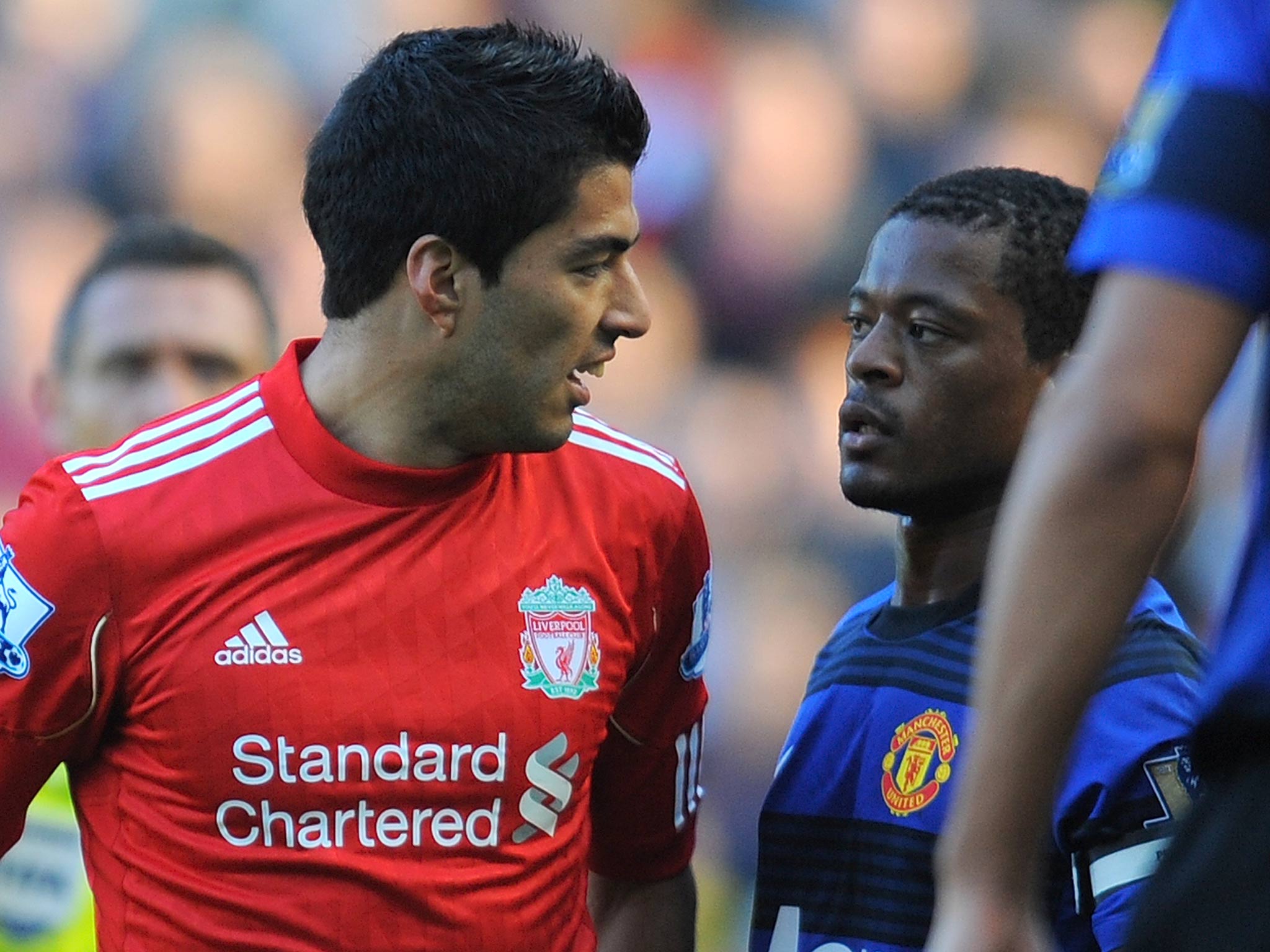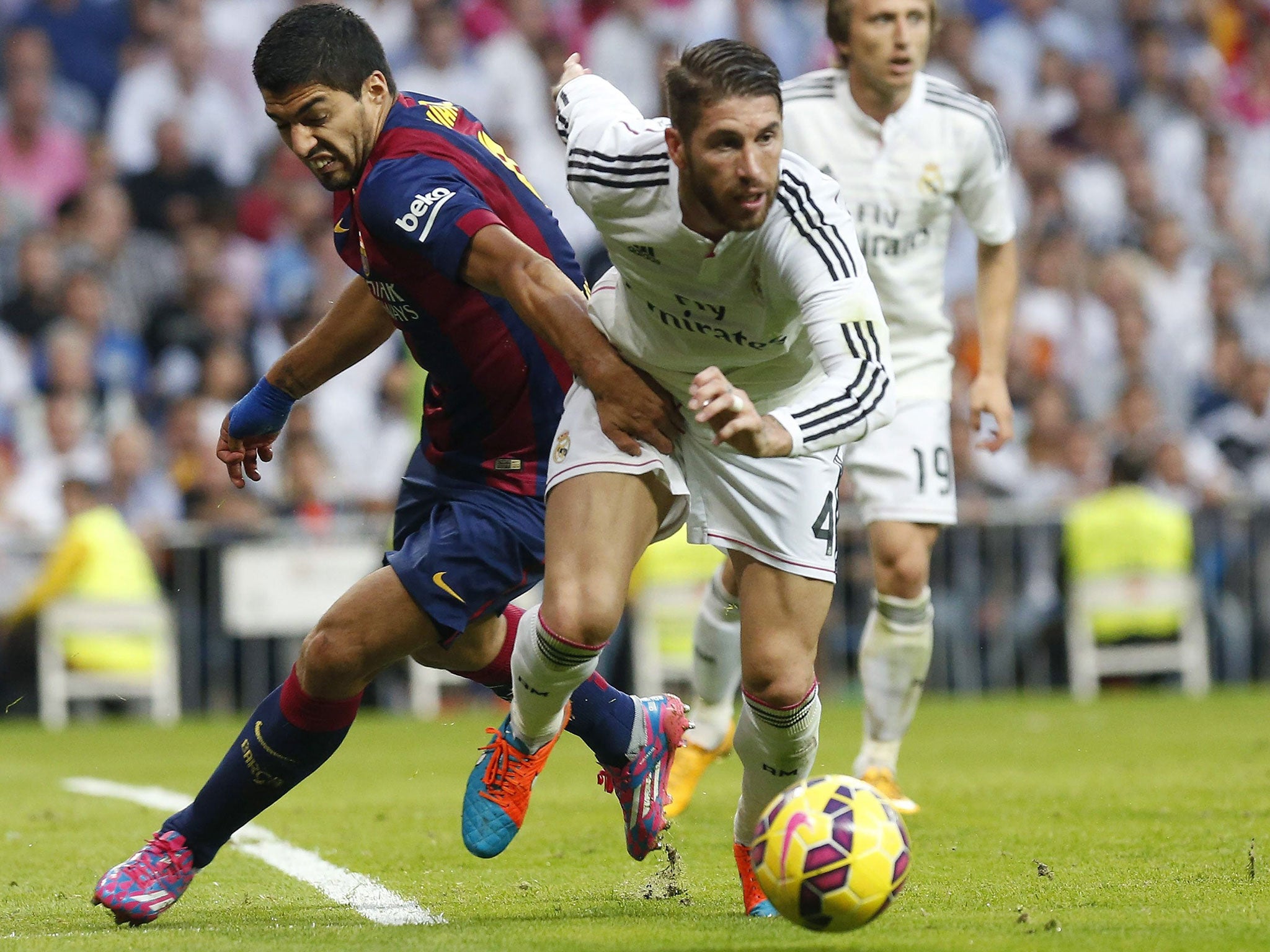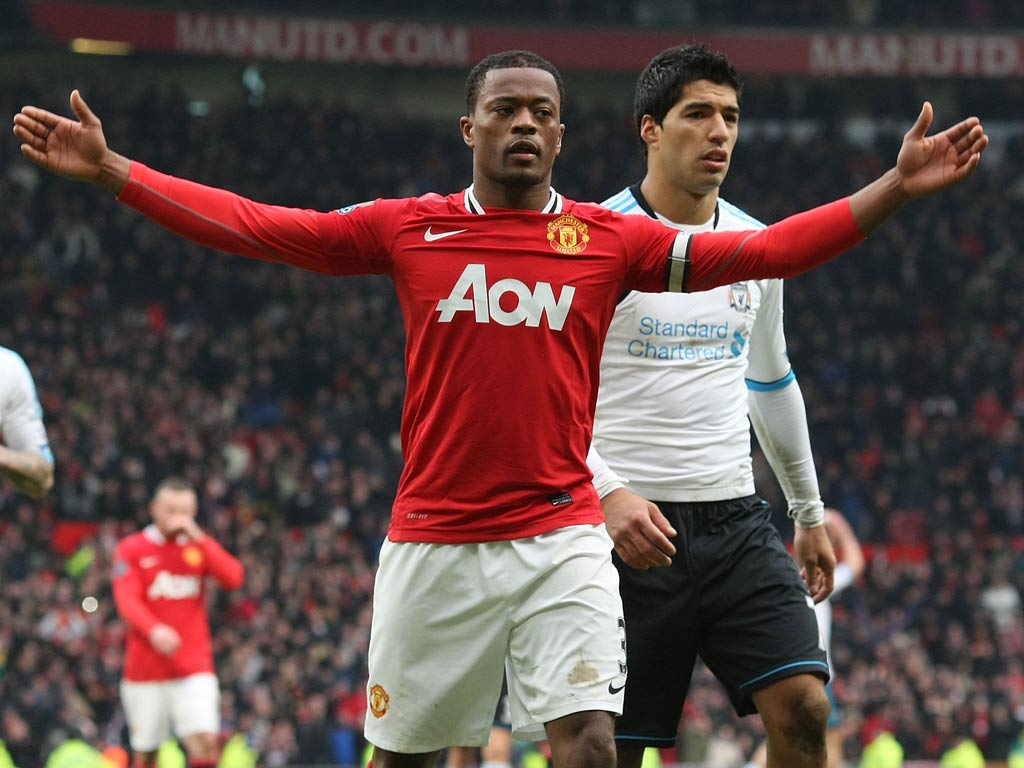Luis Suarez maintains use of the word 'negro' in row with former Manchester United defender Patrice Evra misunderstood by English speakers
Suarez says he is "absolutely not" a racist

Your support helps us to tell the story
From reproductive rights to climate change to Big Tech, The Independent is on the ground when the story is developing. Whether it's investigating the financials of Elon Musk's pro-Trump PAC or producing our latest documentary, 'The A Word', which shines a light on the American women fighting for reproductive rights, we know how important it is to parse out the facts from the messaging.
At such a critical moment in US history, we need reporters on the ground. Your donation allows us to keep sending journalists to speak to both sides of the story.
The Independent is trusted by Americans across the entire political spectrum. And unlike many other quality news outlets, we choose not to lock Americans out of our reporting and analysis with paywalls. We believe quality journalism should be available to everyone, paid for by those who can afford it.
Your support makes all the difference.Luis Suarez has maintained that his use of the word “negro” in his row with Patrice Evra in 2011 was misunderstood by non-Spanish speakers.
While Suarez, who made his Barcelona debut in the 3-1 El Clasico defeat to Real Madrid on Saturday, admits an argument took place, the Uruguayan says that he is “absolutely not” a racist.
Suarez, 27, was banned for eight matches and fined £40,000 for the incident in October 2011, when Liverpool played Manchester United at Anfield.
“Did I use the Spanish word 'negro' in an argument that took place, in Spanish, with Patrice Evra on 15 October 2011 in a game between Liverpool and Manchester United? Yes,” writes Suarez in his new book, serialised by Marca.

“Is the word 'negro' the same in Spanish as it is in English? No, absolutely not. Am I a racist? No, absolutely not.
“I was horrified when I first realised that is what I was being accused of. And I’m still sad and angry to think that this is a stain on my character that will probably be there for ever.”
Suarez only made his debut for Luis Enrique’s men on Saturday because of his four-month ban for biting Giorgio Chiellini during the World Cup; the third instance in which he has bitten an opponent on the pitch.
The striker played reasonably well in the Clasico, providing the assist for Neymar’s opener and setting up Lionel Messi with a cross from which the Argentine should have scored.
Suarez continues: “I knew that Liverpool vs Manchester United was the biggest game in English football for all the years of rivalry, and maybe even more so since Manchester United surpassed Liverpool in the number of league titles won.
“It wasn’t my first game against them. We had played the season before and there had been no problems; the usual run-ins and clashes but nothing that I remember.

“I first became aware there was a problem when Damian Comolli approached me after the game and asked me if anything had happened between me and Evra. At first I struggled to remember anything specific.
“There had been an argument, but then I had probably had quite a few arguments during the game. Comolli said to me: ‘Well, they are complaining about racism’. I was very surprised.
“I recalled that the referee had called us over at one point. Evra had come looking for me at a corner asking me why I had kicked him. It is always a bit hypocritical when a defender who spends the whole game kicking you complains of being kicked.
“He initiated the argument and he chose to do so in Spanish. In the following exchanges between me and him I used the Spanish word "negro" once.
“What some people will never want to accept is that the argument took place in Spanish. I did not use the word 'negro' the way it can be used in English.
“As I am now fully aware (and I did not even know this at the time), in English there is a word that is spelled the same way but is pronounced differently and it is highly offensive: negro, pronounced nee-gro. Negro (pronounced neh-gro) in Spanish means ‘black’, nothing more.”
Join our commenting forum
Join thought-provoking conversations, follow other Independent readers and see their replies
Comments